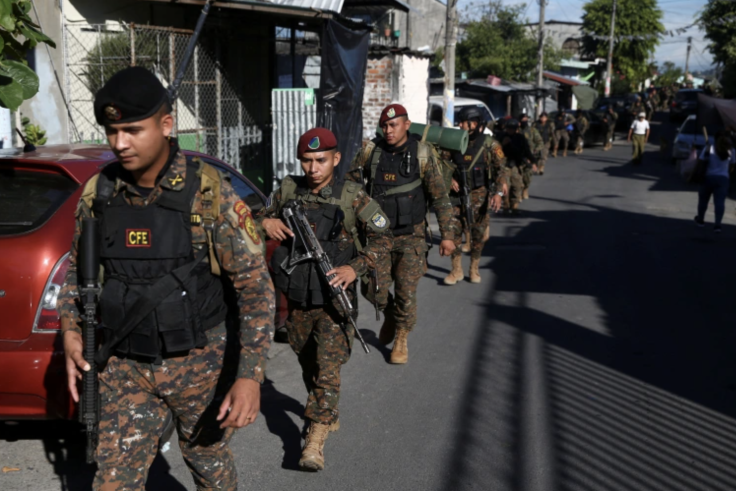The nine-month anti-gang and anti-crime crackdown that the El Salvadoran government has put in place, has been criticized by experts and activists for its potential long-term ineffectiveness in addressing crime, as alleged human rights violations and accusations continue to pile up.
President Nayib Bukele’s state of emergency declaration that allowed for broader powers of the police and military to unilaterally arrest people suspected to be in gangs have been criticized as a human rights disaster. People are openly questioning the government’s claims that crime has gone down significantly since the declaration, according to Al Jazeera.
Over 60,000 people have been arrested since the crackdown began, with over 51,000 people receiving pre-trial detention. The court cases of the people in the trial have been stressful to due to a lack of contact between relatives, prisoners, and lawyers, and many have been forced to face “mass virtual trials” with up to 500 people being grouped together.
Beyond that, the government claims that the mass incarceration has led to “0 homicides” for the past few months. Journalists have claimed that over 470 homicides have happened in the past few months, but are unable to verify this information due to the government not updating the homicide statistics since February, the World Politics Review reported.
An increase of reports of missing people and cases of forced disappearances have also occurred during the crackdown, as well as the discovery of mass graves and “clandestine cemeteries”. These are not being investigated by local police, likely due to the control that organized crime has on regions in the country.
The government has claimed that extortions have decreased 80% since the crackdown began. Ricardo Valencia from the California State University believes, however, that the data is unreliable because the government is “systematically and clearly manipulating data in all aspects.”
Salvadoran gang expert Jose Miguel Cruz said that he believes the police have been unable to tackle the more systemic issues that allows the gang’s power to continue to proliferate in the country, and believes that the mass incarcerations would be a “breeding ground for recruitment” for the gangs in the future.
“If gangs and criminal groups are faced with these external shocks from policies from the government, they will adapt and they will reshuffle,” he said. “They will mutate to an organization and a structure that allows them to survive in a different way.”

© 2025 Latin Times. All rights reserved. Do not reproduce without permission.





